Get it sorted
Household recycling
Find out how to sort your recycling in Bristol and what happens to your recycling after collection.
Kerbside waste and recycling collections
Recycling is collected every week and general waste (non-recyclables) is collected every two weeks. Our crews collect general waste and recycling from more than 200,000 homes in Bristol every week, that’s about 1 million collections a month!
Download your collection calendar to find out which day you should put out your bins and recycling boxes.
On this page you can:
- Learn how to sort your waste and recycling for kerbside collection
- Download a kerbside recycling guide
- Discover more ways to recycle in Bristol
- Report a missed collection
- Check your collection day
- Download your collection calendar
If you’re a landlord or letting agent in Bristol, find information and tips here.
How to sort your recycling
Bristol has four standard recycling containers and one general waste wheelie bin. Some households also subscribe to garden waste collections.
You can order replacement bins and boxes on the Bristol City Council website as well as a small kitchen caddy to collect food waste before taking it outside.
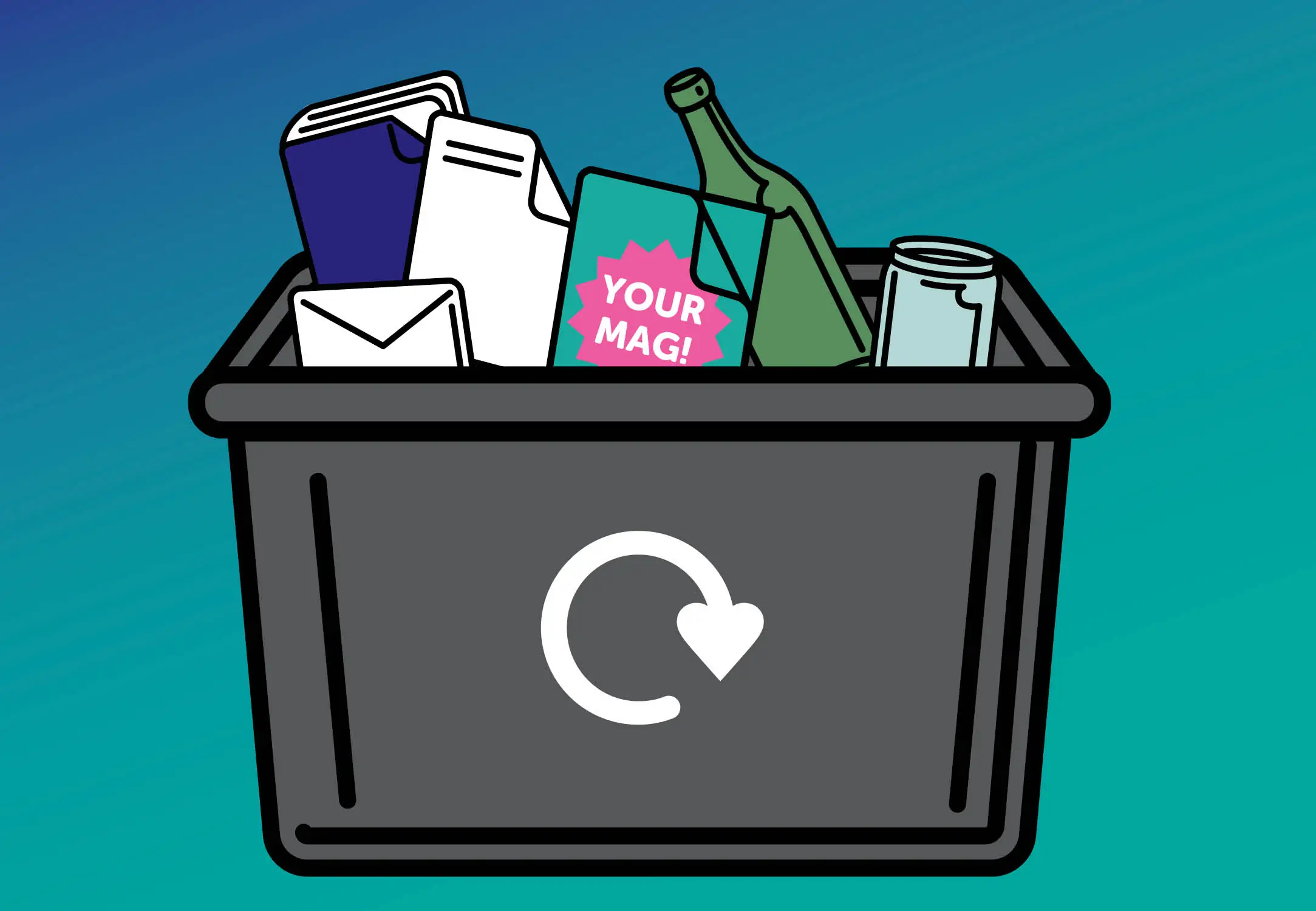
Black box: glass and paper
✅ glass bottles and jars
✅ white and coloured paper
✅ envelopes (remove any plastic)
✅ magazines
No:
❌ brown paper
❌ wrapping paper
❌ metal or plastic lids
❌ broken glass
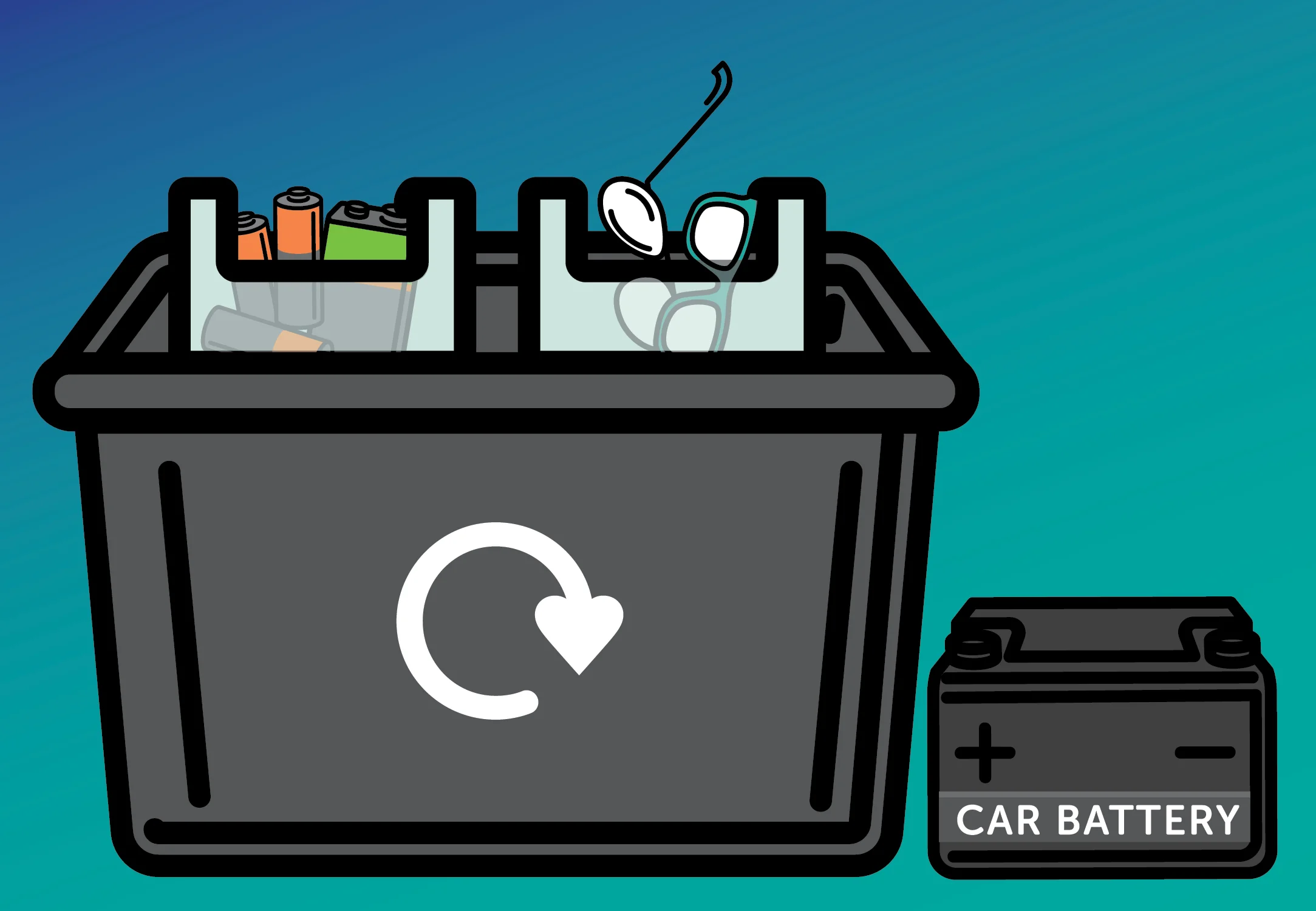
Black box: other
In separate, untied bags inside the black box:
✅ batteries
✅ shoes tied in pairs
✅ spectacles (eyeglasses)
✅ usable, dry textiles
✅ small electric items such as toasters, electric toothbrushes, mobile phones, e-cigarettes (vapes) and remote controls (remove batteries first)
No:
❌ rags, scrap material or duvets
Next to the black box:
✅ engine oil in a sealed container
✅ car batteries
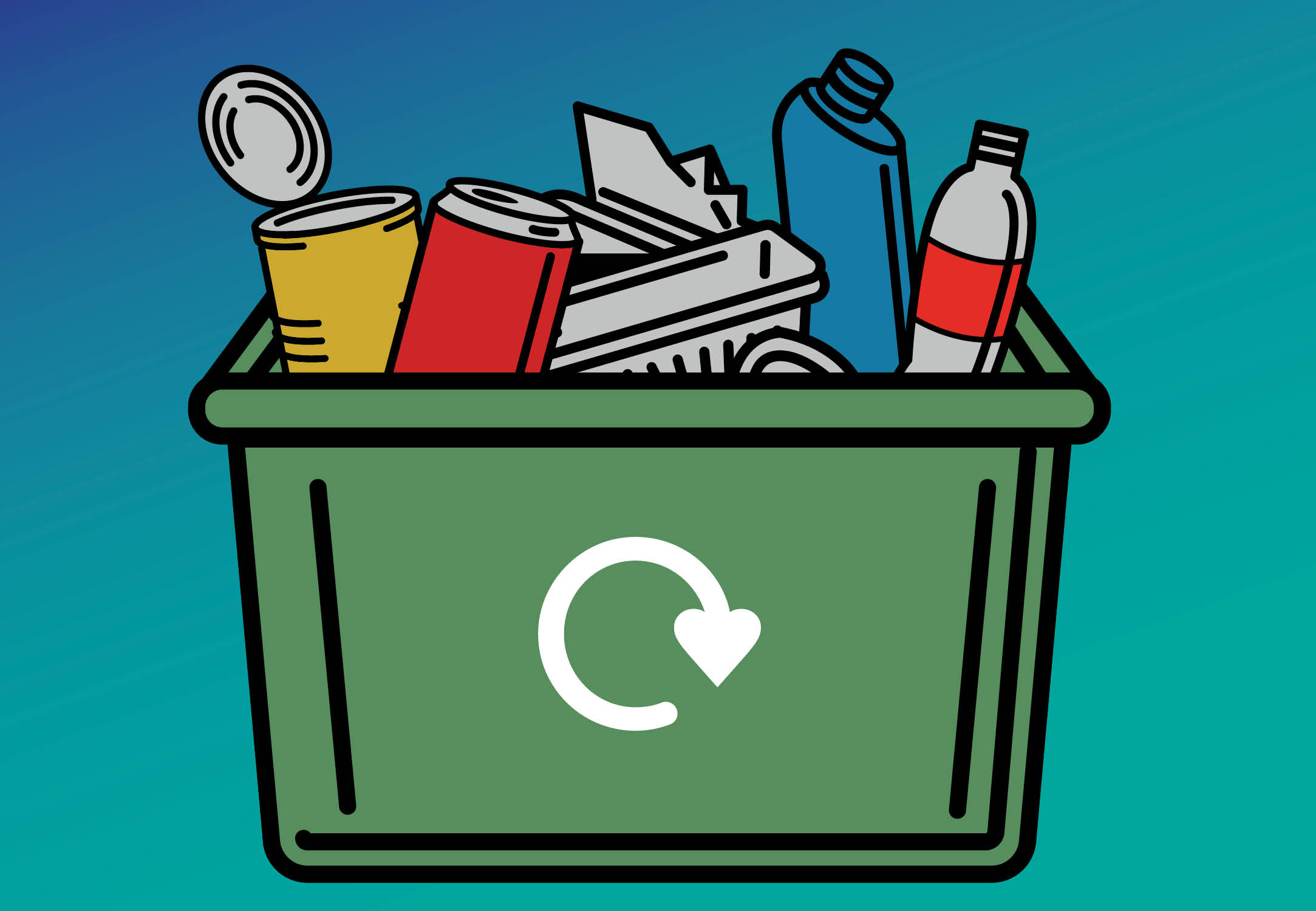
Green box: plastic and metal
✅ cans
✅ plastic bottles
✅ lids and caps
✅ plastic packaging
✅ empty aerosols
✅ foil
No:
❌ black plastic or plastic film
❌ gas cannisters
❌ soft plastics
Fit more into your box by squashing plastic pots and bottles. Keep it clean by giving things a quick rinse before recycling.
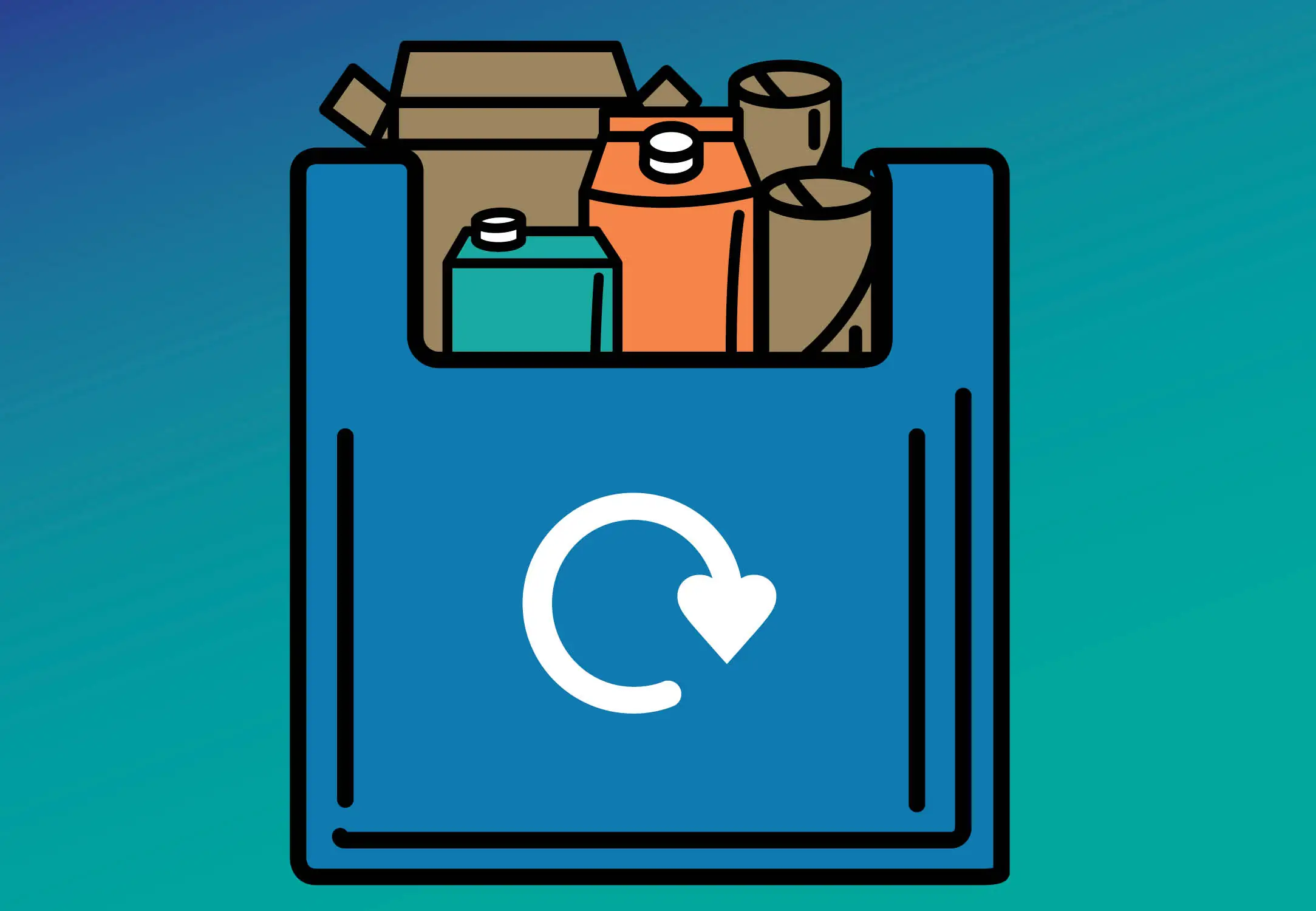
Blue bag: cardboard and brown paper
✅ boxes (remove any tape)
✅ cartons (rinsed and squashed)
✅ greetings cards (no glitter)
✅ cardboard tubes
✅ brown paper
No:
❌ tape
❌ plastic
❌ wrapping paper
Make the most of your 90-litre blue bag by squashing, folding, or cutting up boxes, and don’t forget to check the lid can be closed before you put it out for collection.
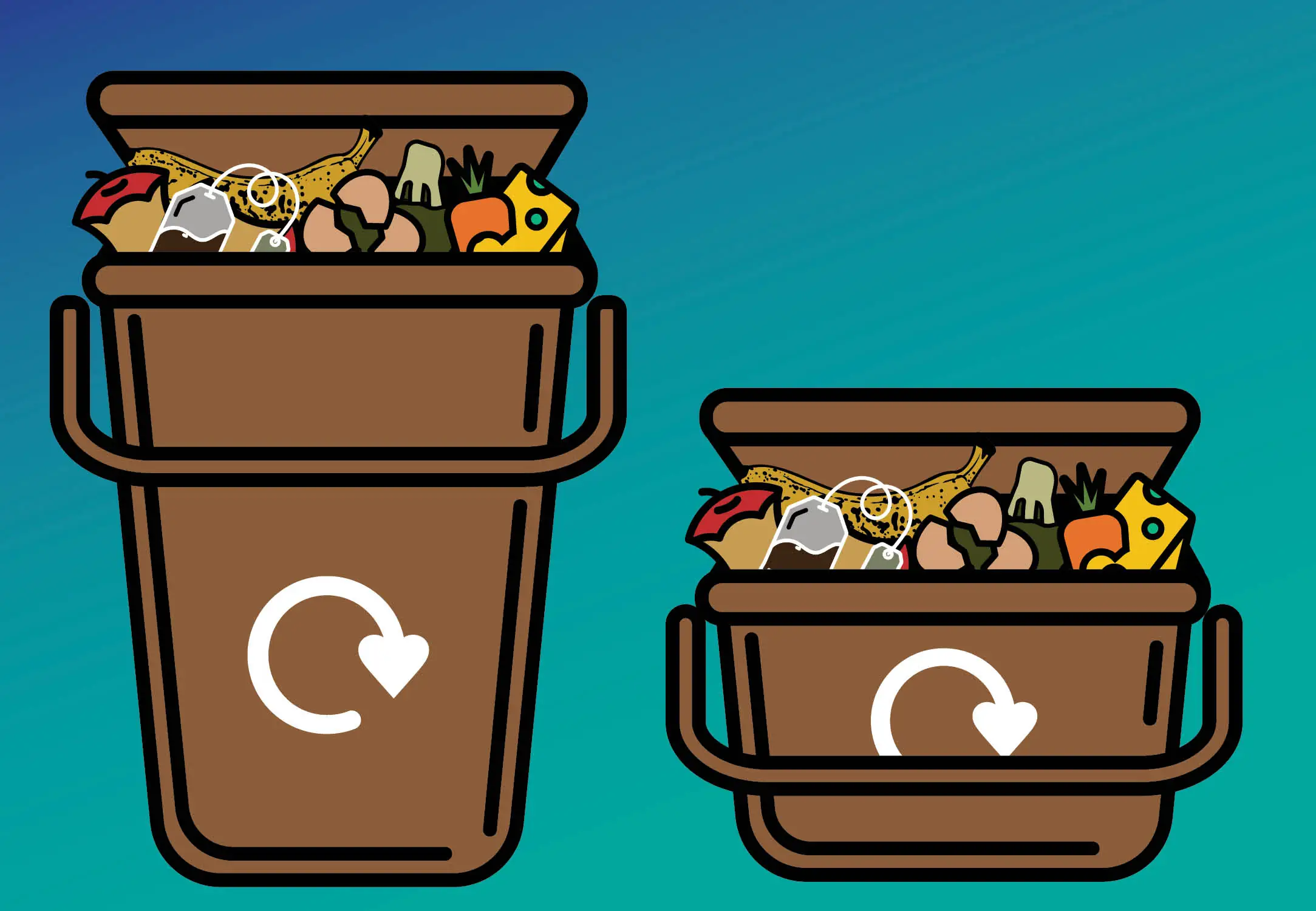
Brown bin: food
✅ fruit and vegetables
✅ cheese and dairy
✅ meat, fish, and bones
✅ eggshells
✅ bread, pasta, rice, and cereal
✅ coffee grounds and tea bags
✅ leftovers and plate scrapings
No:
❌ packaging
❌ plants
Keep your food bin clean by lining it with an old plastic bag (including a used bread bag), a compostable liner or newspaper. All of these will be removed before the food waste is processed.
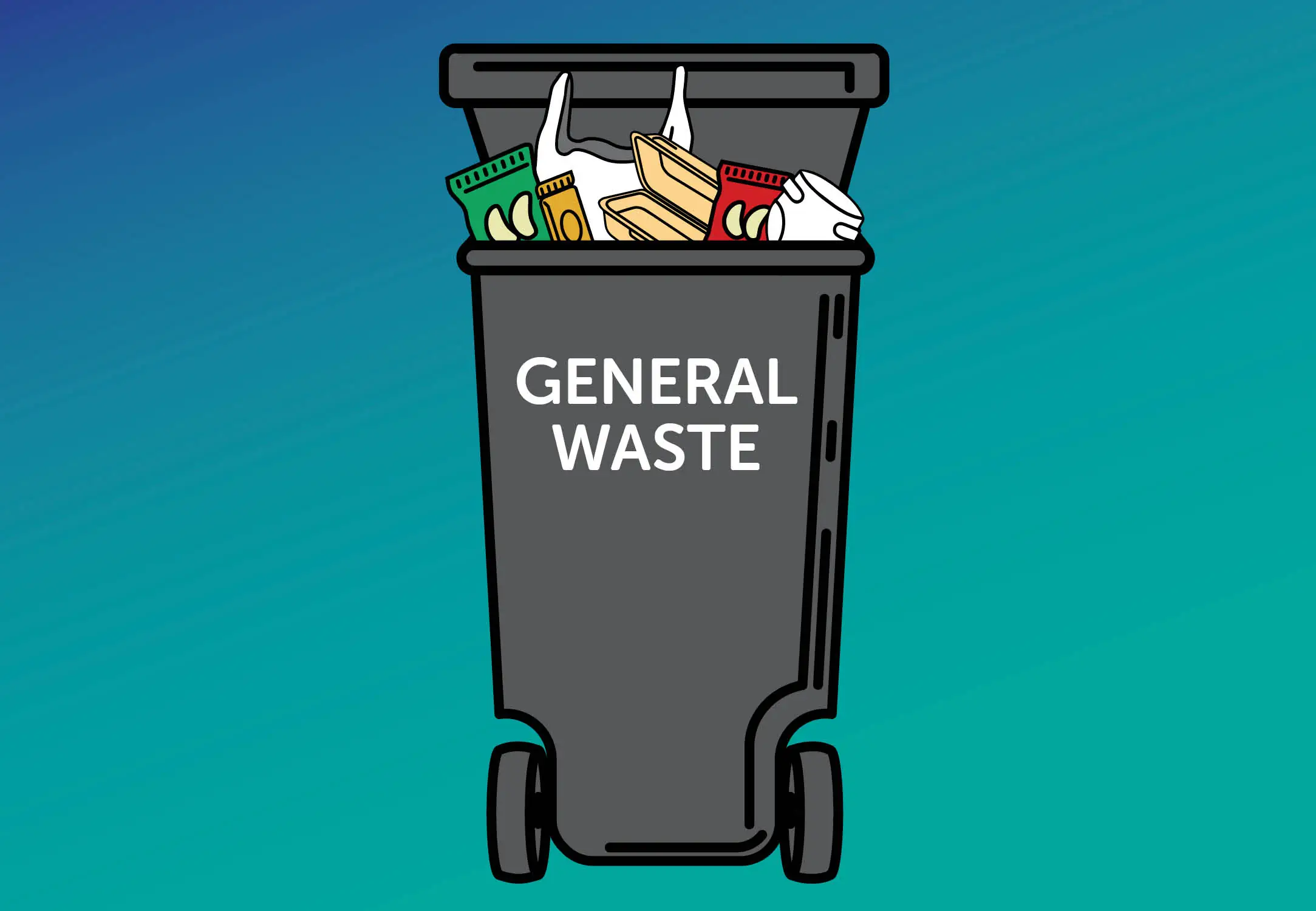
Black wheelie bin: non-recyclable waste
✅ household waste that can’t be recycled
No:
❌ batteries
❌ food
❌ business waste
If you have too much non-recyclable waste to fit into your wheelie bin, or an item that is too large or heavy for the bin, you can:
• take it to a Household Reuse and Recycling Centre
• book a bulky waste collection from Bristol City Council
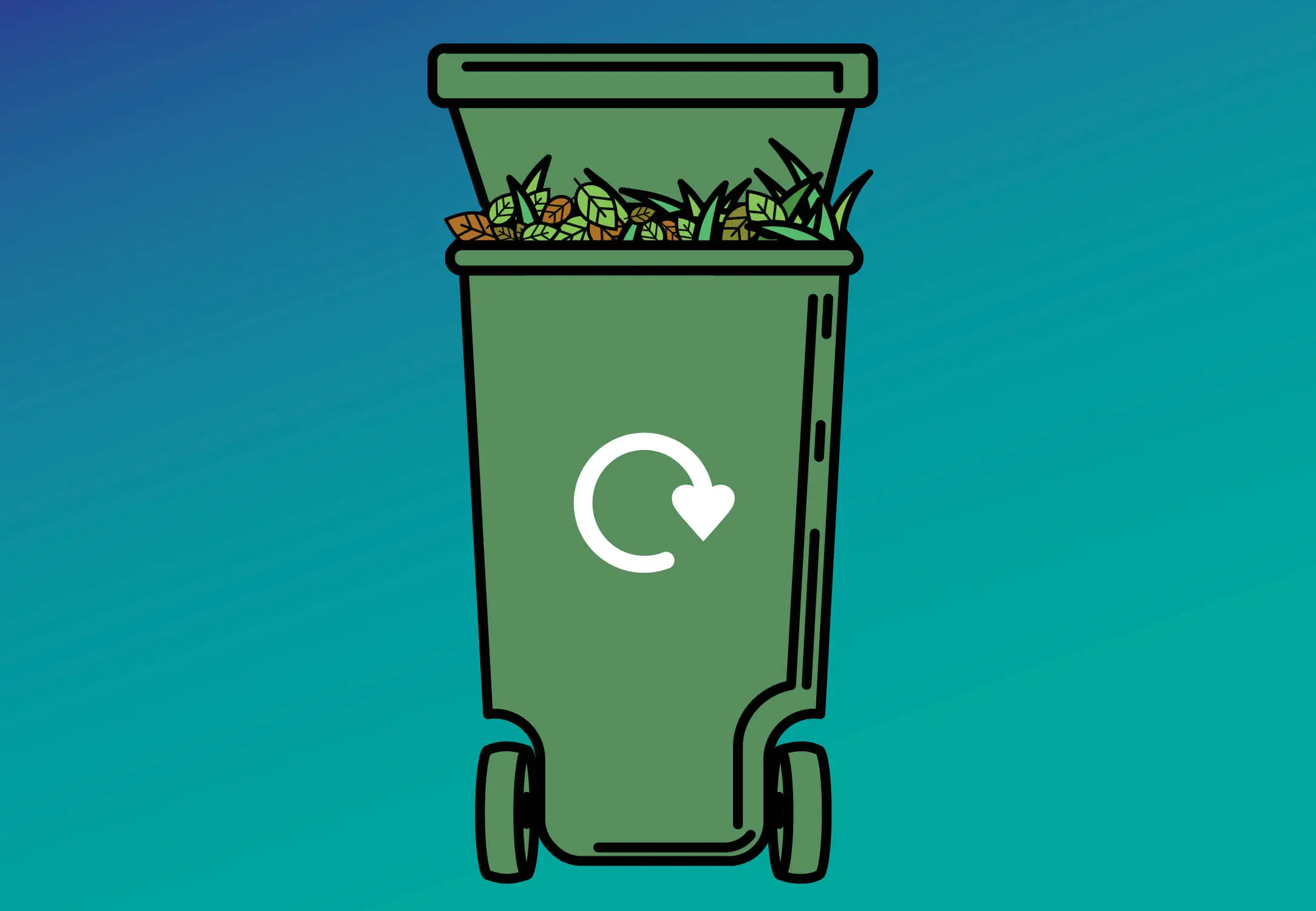
Green wheelie bin: garden waste
✅ grass, leaves, plants including weeds
✅ straw and sawdust
✅ small animal bedding if the pet is fed a vegetarian diet
No:
❌ soil
❌ rubble
❌ plant pots
❌ Japanese knotweed
❌ weedkillers or any other type of chemical
Fortnightly garden waste collections cost £52.50 for a year, and £25 for those receiving some benefits. There’s a £3 discount off the annual charge if paying with Direct Debit. There is a £30 charge (£15 for those receiving some benefits) for delivery of a 240-litre bin. For one-off collections, you can buy garden waste sacks for £2.50 from the council website and some garden centres.
Household recycling
Download a kerbside recycling guide
Our guide to recycling at the kerbside is perfect to pop on your fridge for reference.
Get it sorted
Still not sure what to put in each box or bin? Learn how to sort your kerbside recycling with this short video – don't get in a flap, get it sorted!
More ways to recycle
- Take your recycling to a Household Reuse and Recycling Centre (HRRC)
- Donate usable furniture, electronics, and other items to our Reuse Shops at the HRRCs donation points
- Find a supermarket that accepts soft plastic recycling near you
- Find a shop or supermarket that accepts vapes
- Find out how to safely dispose of medical waste
If you need help putting bins or boxes out, you can ask the council to set up assisted collections by calling 0117 922 2100.
Reporting a missed collection
Our crews sometimes need to return to a street the next day to finish collecting all the waste and recycling. If your collection has been rescheduled for the next day, it will appear on this list.
If any of your bins and boxes were not collected and your street isn’t on the list, you need to report this as a missed collection on the council website. Missed waste and recycling collections should be reported online after 5pm on the day the collection was missed and before 5pm the next working day.

